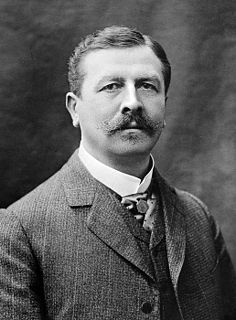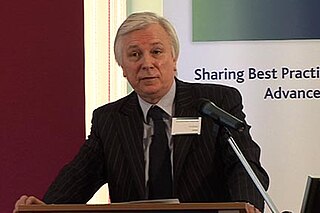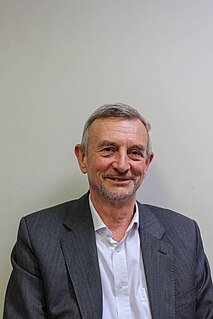Related Research Articles

Neurology is a branch of medicine dealing with disorders of the nervous system. Neurology deals with the diagnosis and treatment of all categories of conditions and disease involving the central and peripheral nervous systems, including their coverings, blood vessels, and all effector tissue, such as muscle. Neurological practice relies heavily on the field of neuroscience, the scientific study of the nervous system.

Oliver Wolf Sacks, was a British neurologist, naturalist, historian of science, and writer. Born in Britain, Sacks received his medical degree from The Queen's College, Oxford in 1960, before moving to the United States, where he spent most of his career. He then interned at Mount Zion Hospital in San Francisco and completed his residency in neurology and neuropathology at the University of California, Los Angeles (UCLA). After a fellowship at the Albert Einstein College of Medicine, he served as neurologist at Beth Abraham Hospital's chronic-care facility in the Bronx, where he worked with a group of survivors of the 1920s sleeping sickness encephalitis lethargica, who had been unable to move on their own for decades. His treatment of those patients became the basis of his 1973 book Awakenings, which was adapted into an Academy Award-nominated film in 1990, starring Robin Williams and Robert De Niro.

Joseph Jules François Félix Babinski was a French-Polish professor of neurology. He is best known for his 1896 description of the Babinski sign, a pathological plantar reflex indicative of corticospinal tract damage.

The American Academy of Neurology (AAN) is a professional society representing over 38,000 neurologists and neuroscientists. As a medical specialty society it was established in 1948 by A.B. Baker of the University of Minnesota to advance the art and science of neurology, and thereby promote the best possible care for patients with neurological disorders. It is based in Minneapolis, Minnesota.

John Michael Newsom-Davis was a neurologist who played an important role in the discovery of the causes of, and treatments for, Myasthenia gravis, and of other diseases of the nerve-muscle junction, notably Lambert-Eaton myasthenic syndrome and acquired neuromyotonia. Regarded as "one of the most distinguished clinical neurologists and medical scientists of his generation," he died in a car accident in Adjud, Romania, having visited a neurological clinic in Bucharest earlier the same day.

Samuel Alexander Kinnier Wilson was an American-born British neurologist. His research of hepatolenticular degeneration led the disease to be named after him as Wilson's disease. He was the father of British Assyriologist James Kinnier Wilson.
The European Federation of Neurological Societies was an organisation that united and supported neurologists across the whole of Europe. As of 2013, 45 European national neurological societies were registered members of the EFNS, and the federation represented more than 19,000 European neurologists. It was founded in 1991 in Vienna, Austria.

St Mary's Hospital is a hospital located on the outskirts of Newport on the Isle of Wight. It is run by the Isle of Wight NHS Trust.

Andrew John Lees is Professor of Neurology at the National Hospital for Neurology and Neurosurgery, Queen Square, London and University College London. In 2011 he was named as the world's most highly cited Parkinson's disease researcher.

The Revue neurologique is a French neurological and psychiatric medical journal. It was established in 1893 with Jean-Martin Charcot as adviser. Today it is the official journal of the Société Française de Neurologie. According to the Journal Citation Reports, the journal has a 2016 impact factor of 1.039.
The American Osteopathic Board of Neurology and Psychiatry (AOBNP) is an organization that provides board certification to qualified Doctors of Osteopathic Medicine (D.O.) who specialize in disorders of the nervous system (neurologists) and to qualified Doctors of Osteopathic Medicine who specialize in the diagnosis and treatment of mental disorders (psychiatrists).

Frank Clifford Rose was a British neurologist, active in several journals and societies related to the specialty of neurology and its history, whose research contributed to the understanding of motor neurone disease, stroke and migraine. He developed an emergency stroke ambulance service with early neuroimaging, allowing for the detection of early reversible brain damage. In 1974, he established what would later be known as the Princess Margaret Migraine Clinic, a specialist clinic for headache at Charing Cross Hospital, where in 1965 he became their first appointed consultant neurologist.
The European Academy of Neurology (EAN) is a non-profit organisation that unites and supports neurologists across Europe. Currently, 47 European national neurological societies as well as 2300 individuals are registered members of EAN. Thus, EAN represents more than 45,000 European neurologists.
Dame Pamela Jean Shaw is a British consultant neurologist, and professor of neurology at the University of Sheffield. She is the founder and director of the Sheffield Institute for Translational Neuroscience (SITraN), and in 2019 was appointed to lead the National Institute for Health Research (NIHR) Sheffield Biomedical Research Centre.
The Association of British Neurologists is a professional organisation founded in 1932 and expanded to include overseas membership in 1937.
Jagjit Singh Chopra was an Indian neurologist, medical writer and an Emeritus Professor of the Department of Neurology at the Post Graduate Institute of Medical Education and Research (PGIMER).
Mary M. Reilly FRCP is an Irish neurologist who works at National Hospital for Neurology and Neurosurgery. She studies peripheral neuropathy. She is the President of the Association of British Neurologists.

Martin Neil Rossor, is a British clinical neurologist with a specialty interest in degenerative dementias and familial disease.
Prof Clare Fowler CBE is a British physician and academic who created the subspecialty of uro-neurology, a medical field that combines urology and neurology. This work was done at the Institute of Neurology, University College London, where she is an emeritus professor.

Edward Wild, also known as Ed Wild, is a British neurologist and neuroscientist in the field of Huntington's disease and advocate for scientific outreach to the public. He co-founded the Huntington's research news platform HDBuzz in 2010. He is a professor of neurology at UCL Institute of Neurology and is an associate director of the UCL Huntington's Disease Centre. He is also a consultant neurologist at the National Hospital for Neurology and Neurosurgery in London.
References
- ↑ "Christopher Joseph Earl | RCP Museum". history.rcplondon.ac.uk. Retrieved 15 March 2021.
- ↑ "Dr Christopher Earl". The Telegraph. 27 March 2012. Archived from the original on 15 March 2021. Retrieved 15 March 2021.